|
At a recent webinar organized by Community Partners International, speakers from ethnic and community-based organizations in Myanmar’s Rakhine and Kayin States emphasized that cooperation is essential to an effective COVID-19 response. On September 23, 2020, Community Partners International (CPI) held the first of a series of live online webinars focused on “COVID-19 and Conflict in Myanmar’s Ethnic States”. At this first webinar, four panelists discussed COVID-19 response efforts in Myanmar’s Rakhine and Kayin States. The panel consisted of:
The panelists explored the current status of the COVID-19 pandemic and reviewed collaboration in COVID-19 response between the Government of Myanmar and ethnic and community-based organizations They shared their views on the gaps in and challenges to successful collaboration, and outlined the additional support and actions needed. The Situation in Rakhine State Opening the webinar, Saw Mra Raza Linn, Chair of the Rakhine Women’s Union (RWU), explained that the COVID-19 pandemic is unfolding in Rakhine State against the backdrop of escalating violence and conflict. Tens of thousands of people have been displaced by fighting in recent months and movement restrictions mean that many communities remain isolated with little access to health and humanitarian services. People living in displacement sites are unable to practice physical distancing due to their cramped and crowded living conditions. Most townships in Rakhine State have little or no access to the internet as a result of a government-imposed internet blackout and subsequent technical issues, creating a significant barrier to sharing up-to-date information about COVID-19. The RWU is supporting COVID-19 response in displacement sites in Rakhine State and Saw Mra Raza Linn reported being told by residents from time to time that, “Please don’t ask us to wash our hands. We don’t even have any buckets or water tanks to carry or store water.” The RWU have now started providing water containers to these displaced communities so that they can access basic hygiene. Alongside COVID-19, Saw Mra Raza Linn explained that gender-based violence, poor food security and safety, and a lack of income opportunities remain key concerns for residents in the displacement camps. Saw Mra Raza Linn stressed that the Rakhine State Government needs to collaborate closely with ethnic and community-based organizations for better COVID-19 response. She also recommended reducing the centralization of the government response, giving more power and responsibility to the state and local authorities. This approach, she believed, would enable a more effective and efficient response. “The State Government knows the situation on the ground and is better-placed [than the Union government] to take rapid action to respond to the emergency situation,” she explained. Saw Mra Raza Linn also noted that while some of the armed groups in Rakhine have already signed the National Ceasefire Agreement, additional ceasefire agreements between combatants covering the pandemic period would help to improve the security situation for local communities. The Situation in Kayin State Dr. Ed Marta, representing the Karen Ethnic Health Organizations Consortium (KEHOC), explained that Kayin State ethnic health organizations (EHOs) have experienced improving relationships and meaningful collaboration with the Government of Myanmar and the Ministry of Health and Sports (MoHS) in recent years. Due to these improved relationships, they began to consult and cooperate with the Kayin State Health Department around COVID-19 response in February 2020, before Myanmar announced confirmed cases. Dr. Marta revealed that ethnic health organizations in Kayin State are currently providing community-based quarantine centers, fever clinics and school-based COVID-19 prevention activities in their service areas, and are referring suspected COVID-19 cases to government health facilities. They are also producing information, education and communication materials and distributing them to local communities. Dr. Marta emphasized that KEHOC would like to have capacity to conduct swab tests for COVID-19, and the consortium has requested training for this from the MoHS. They would also like their community-based quarantine facilities to receive formal recognition from the MoHS. Dr. Marta explained that the greatest obstacle to deeper cooperation is that the MoHS is not currently able to provide the training and recognition that KDHW has requested. KEHOC has therefore submitted a written request for guidance to the National Reconciliation and Peace Center (NRCP) and is waiting for their response. Saw Diamond Khin, representing the Central Office of the Karen Department of Health and Welfare (KDHW), the health department of the Karen National Union (KNU), explained that KDHW established a COVID-19 Committee in March 2020. Their main strategy is to support point of entry and community quarantine facilities and health education initiatives. KDHW is also supporting 58 village tract health centers in their service areas to operate as fever clinics. Saw Diamond Khin explained that KDHW had faced challenges to implement COVID-19 response activities with movement restrictions in place, and that there had been some communication gaps with government health centers. He emphasized that data sharing with the MoHS is one of the most important areas for effective collaboration in COVID-19 response. However, the majority of the communities that they serve are very remote from government health centers and this makes timely information sharing difficult. He stressed that they are also concerned about the shortfall of resources available to commit to COVID-19 response, particularly in 2021. COVID-19 and a Future Federal Health System
In the last session of the webinar, Dr. Htet Min Lwin of the Forum of Federations placed COVID-19 response into the context of a future federal health system in Myanmar. He explained that the Myanmar health system is complex, varied and changing. Dr. Htet Min Lwin revealed that in conflict-affected areas, the MoHS lacks sufficient manpower and budget to provide comprehensive health service coverage. In those areas, health care has largely become the responsibility of ethnic and community-based health organizations. During the COVID-19 pandemic, coordination and collaboration between the government and these organizations is crucial for an effective response. Dr. Htet Min Lwin emphasized that, “the current period can be seen as a golden opportunity for the government because they have a mandate to implement the changes necessary to prevent COVID-19. This gives them an opening to start structuring and institutionalizing decentralization; efforts should start now.” The next webinar in this series will take place on November 4 and will focus on Kachin and Shan States in northern Myanmar. For questions about CPI’s work and research on conflict and health, please contact Nyo Yamonn. Comments are closed.
|
AuthorCPI Admin Archives
July 2024
Categories
All
|
|
|
COMMUNITY PARTNERS INTERNATIONAL
580 California St Fl 16, Ste 1658, San Francisco, CA 94104-1068, USA [email protected] +1 510 225 9676 We are a registered nonprofit 501(c)(3) Public Charity. TAX ID 94-3375666 |
©
Community Partners International

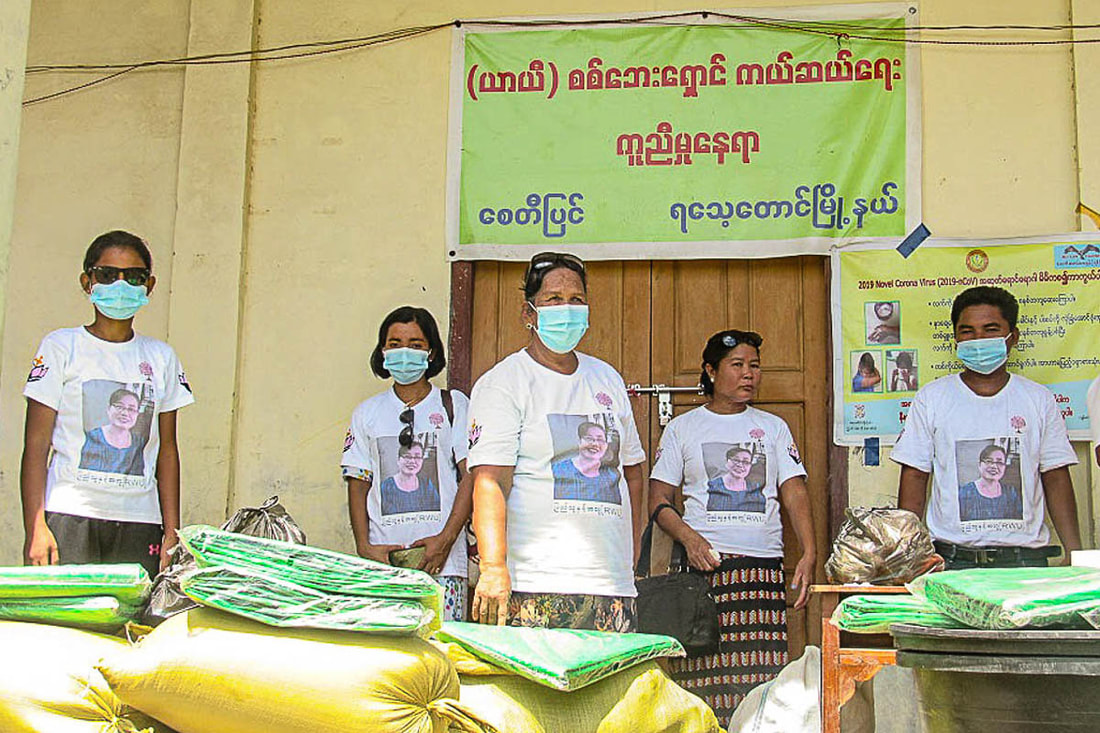
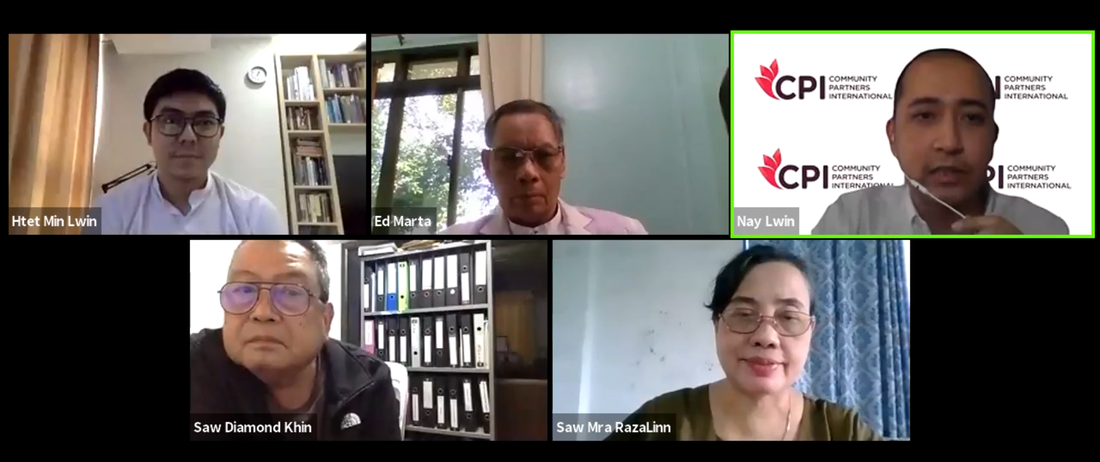
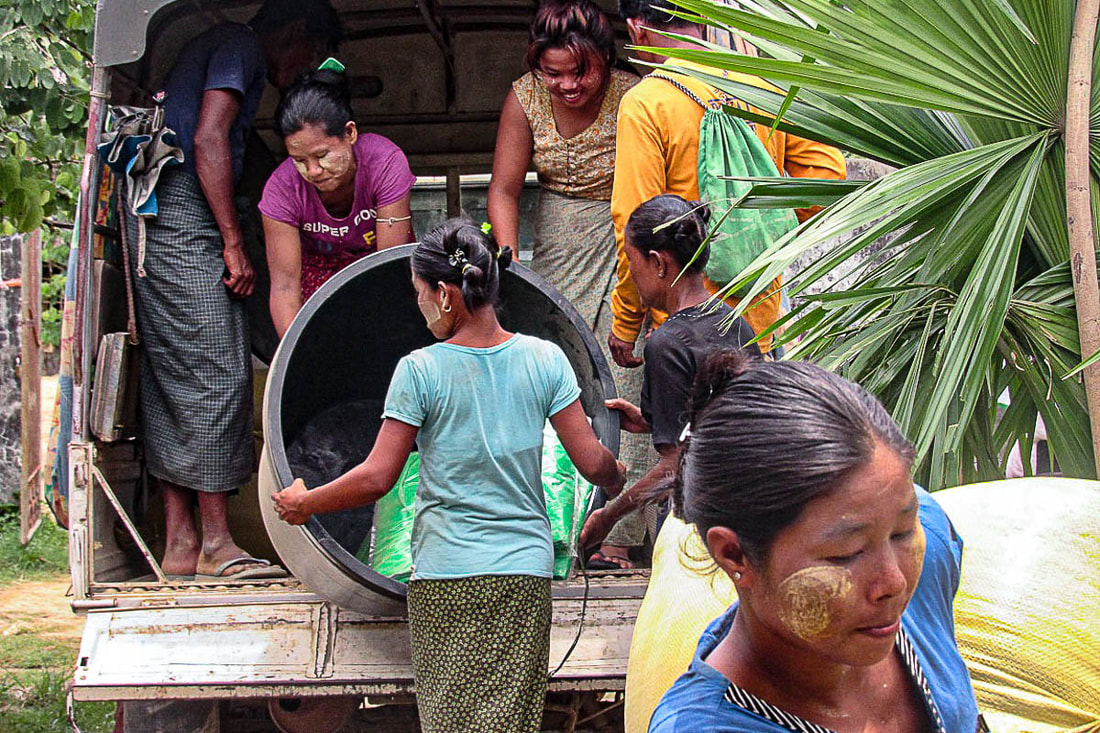
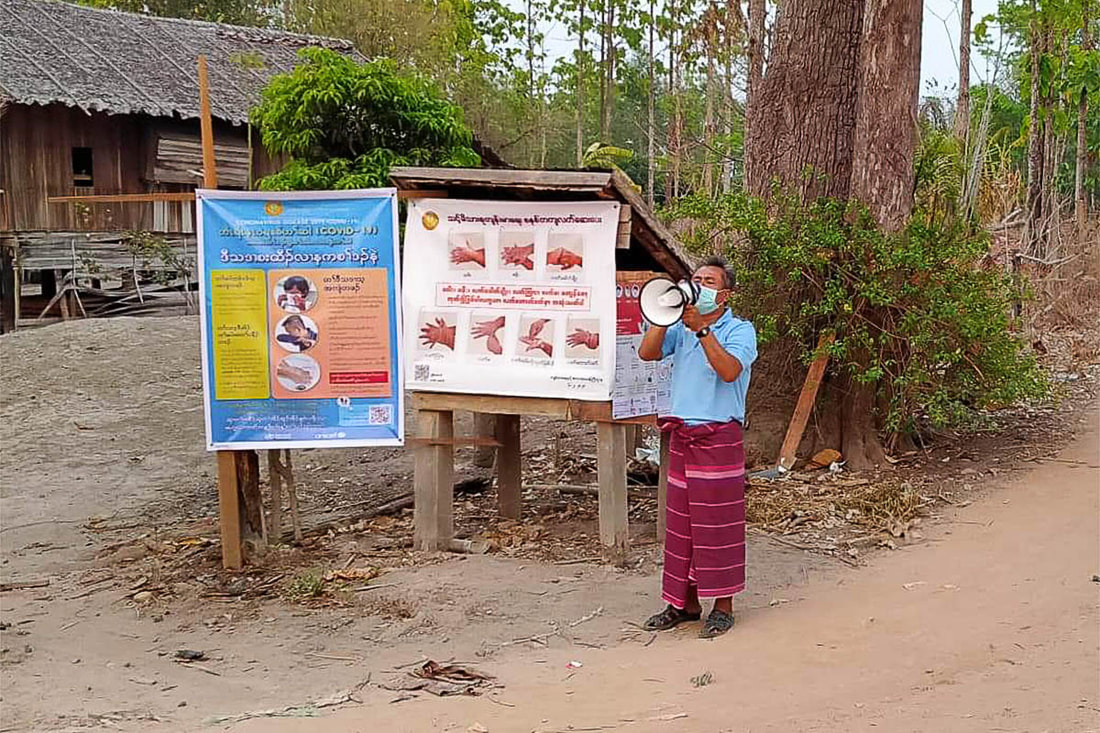
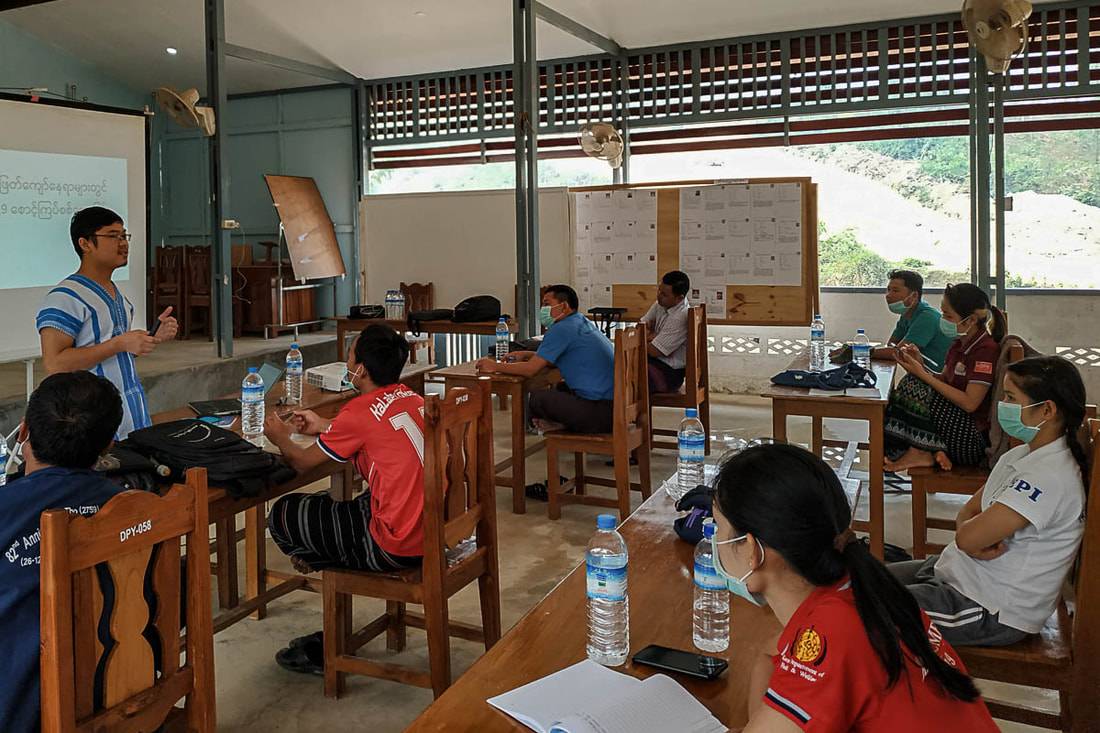
 RSS Feed
RSS Feed
